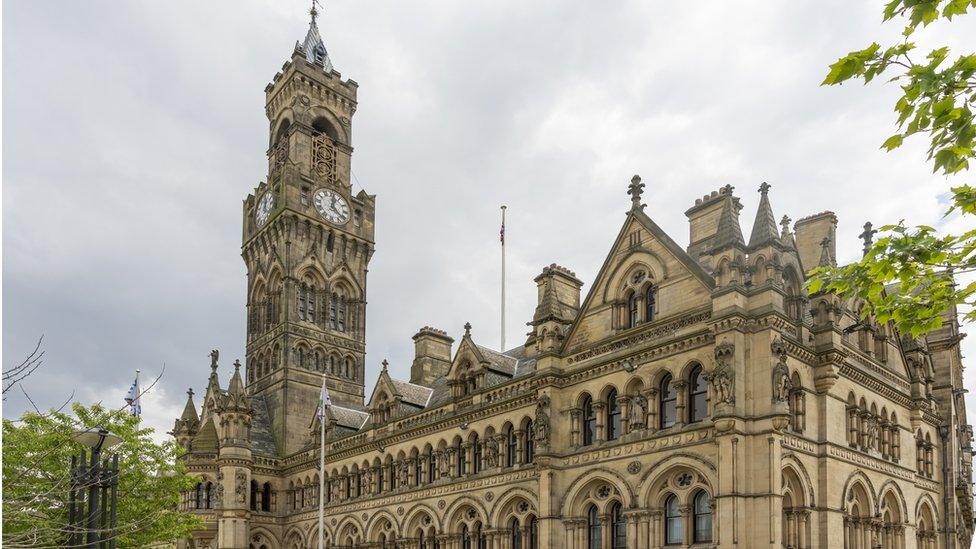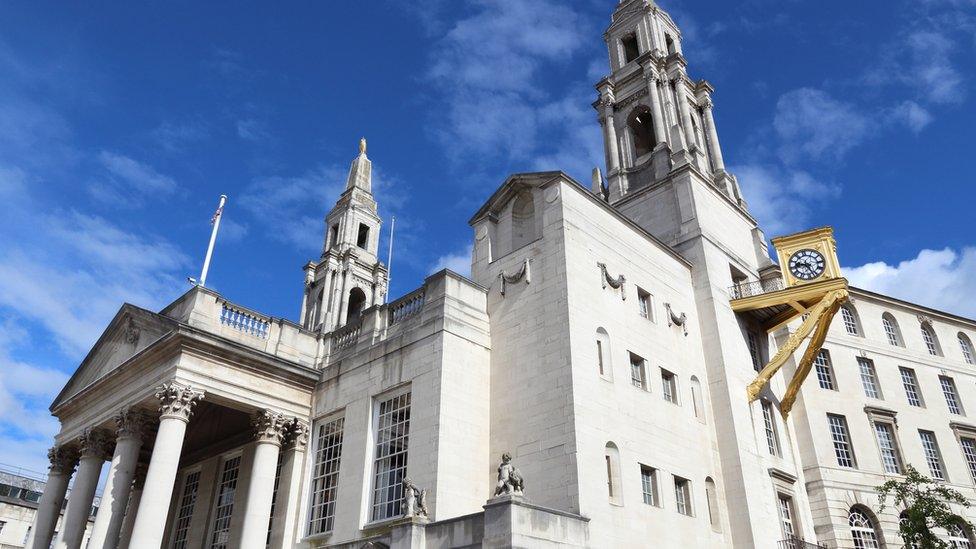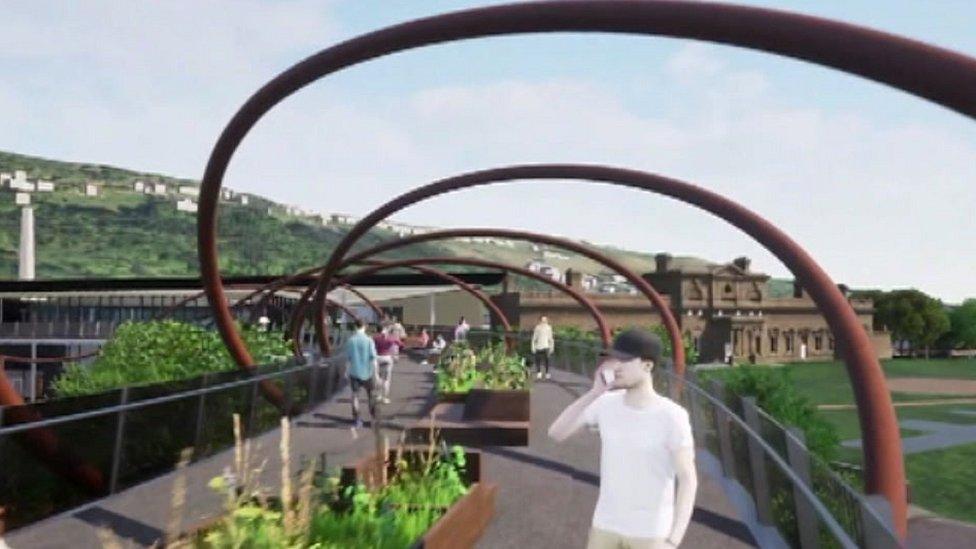Bradford: Inflation pressures to cost city £58m - council leader
- Published

Bradford Council plans to dip into reserves, raise council tax and cut services
Inflationary pressures will cost Bradford an extra £58m next year, according to the council's leader.
Labour's Susan Hinchcliffe said the authority had no choice but to raise council tax and cut some services.
It would also have to use almost £30m of its cash reserves to deliver a balanced budget, Ms Hinchcliffe added.
The government said it recognised the pressure councils faced and had announced "an average increase of 9% in core spending power" for authorities.
A 4.99% hike in council tax was among Bradford Council's proposals, which were to be considered by its executive later.
Ms Hinchcliffe said that increase would raise £11m in Bradford, which she said was half the amount raised by council tax in "more affluent" Elmbridge in Surrey.
That was not "fair or just", she added.
"We have made it quite clear to government we think it is a very regressive way of funding local public services to keep charging people more and more council tax," she said.
Demand for council services had risen as more people struggled with the cost of living and inflationary costs were not met by central government, Ms Hinchcliffe said.
"We are going to have next year £58m inflationary costs - and that is street lighting, energy and pay awards."
According to Bradford Council, it had already had to find £310m in budget reductions, savings and extra income since 2011.
"There's not an awful lot left to cut, to be honest," Ms Hinchcliffe said.

Leeds City Council is having to find £70m in savings
The authority's plans to save money included the closure of some council buildings, charging people who self-funded social care the full cost and managing staff vacancies, according to Bradford Council.
A review of waste services was also expected to see opening hours at all tips cut and the potential closure of Keighley Household Waste and Recycling site.
However, people in Keighley have already expressed concern about a possible closure of the site.
Joe Thorpe, who runs a gardening company in the area, told BBC Radio Leeds: "I can't believe they are even proposing it, it is the only trade-waste tip in the area."
Meanwhile, in neighbouring Leeds, the city council previously said it needed to find £70m in savings.
It said it planned to cut the number of children's nurseries it provided, dim street lights, cut jobs and introduce parking charges at some parks.
James Lewis, Leeds City Council's leader, said the authority had no choice.
He said: "The demand for services is going up, yet the grant we get from government is going down. That means we have to stretch council tax further and further."
A government spokesperson said they recognised the pressure on council budgets.
"Which is why we have announced an average increase of 9% in core spending power for councils next year, making available an additional £5bn."
They added that Bradford had received an extra £35m this year and Leeds had been provided an additional £48m.
The spending plans for both Bradford and Leeds councils were due to be considered on Wednesday, before being put to the full councils early next year.

Follow BBC Yorkshire on Facebook, external, Twitter, external and Instagram, external. Send your story ideas to yorkslincs.news@bbc.co.uk, external.
- Published6 December 2022

- Published5 December 2022
